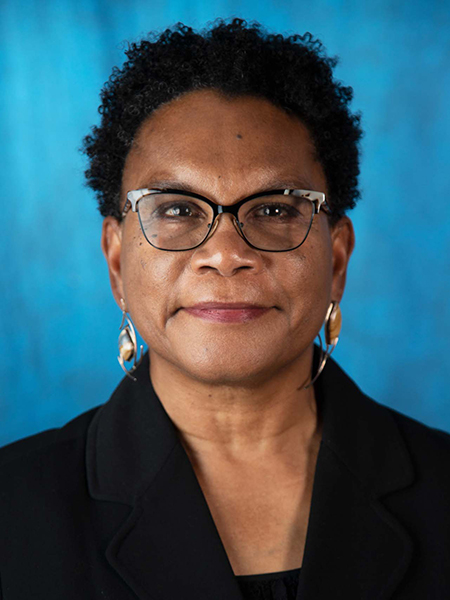
Sue E. Denman Distinguished Chair in American Literature
Joycelyn Moody, PhD
Sue E. Denman Distinguished Chair in American Literature
Professor, English
Joycelyn Moody, the Sue E. Denman Distinguished Chair in American Literature, is using some of her endowment funds to build the university’s future and the future of African American studies across the nation.
In January 2010, Moody created the African American Literatures and Cultures Institute (AALCI), an elite three-week summer residency program designed to prepare a handful of promising college juniors for graduate school. The institute selects eight applicants annually and provides them with $2,000 research stipends, rigorous mentoring, innovative academic training and encouragement to pursue academic careers in English and African American literary studies.
"In the institute, I see students grow, and that gives me so much joy. Watching the light bulbs go off, making the professoriate something that these students believe they can do, developing their confidence and supplying them with the nuts and bolts of how to get things done. That’s what it’s all about.”
Moody was inspired to create the institute by an article by the late Nellie McKay, an African American scholar and professor at the University of Wisconsin, Madison, who expressed concern that not enough students of African American studies were in the pipeline to replace the current generation of teachers.
“African American studies is a scholarly discipline that must be studied and cultivated, and not necessarily by African Americans,” Moody said.
Before joining UT San Antonio in 2009, Moody served as editor-in-chief of the African American Review from 2004 through 2008. She previously taught at several institutions, including the University of Washington, Saint Louis University, Hamilton College, and the Harvard School of Divinity.
In addition to funding the AALCI, Moody said the Denman endowment gives her latitude to do many things, including maintaining her own research funding on 19th-century African American literature without having to compete with colleagues for those resources.
“I had a fabulous job as editor of the African-American Review,” she said. “It would have taken an awful lot to get me to leave—and it did.”